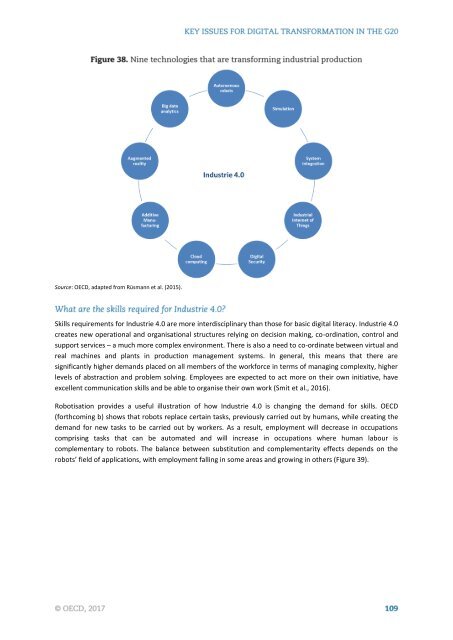KEY ISSUES FOR DIGITAL TRANSFORMATION IN THE G20
2jz0oUm
2jz0oUm
You also want an ePaper? Increase the reach of your titles
YUMPU automatically turns print PDFs into web optimized ePapers that Google loves.
Source: OECD, adapted from Rüsmann et al. (2015).<br />
Skills requirements for Industrie 4.0 are more interdisciplinary than those for basic digital literacy. Industrie 4.0<br />
creates new operational and organisational structures relying on decision making, co-ordination, control and<br />
support services – a much more complex environment. There is also a need to co-ordinate between virtual and<br />
real machines and plants in production management systems. In general, this means that there are<br />
significantly higher demands placed on all members of the workforce in terms of managing complexity, higher<br />
levels of abstraction and problem solving. Employees are expected to act more on their own initiative, have<br />
excellent communication skills and be able to organise their own work (Smit et al., 2016).<br />
Robotisation provides a useful illustration of how Industrie 4.0 is changing the demand for skills. OECD<br />
(forthcoming b) shows that robots replace certain tasks, previously carried out by humans, while creating the<br />
demand for new tasks to be carried out by workers. As a result, employment will decrease in occupations<br />
comprising tasks that can be automated and will increase in occupations where human labour is<br />
complementary to robots. The balance between substitution and complementarity effects depends on the<br />
robots’ field of applications, with employment falling in some areas and growing in others (Figure 39).


